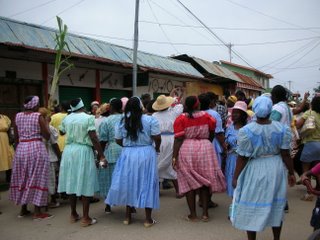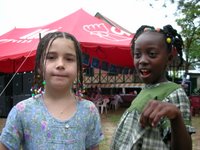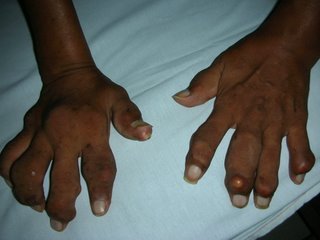 November 26th is the annual Día Garífuna in Livingston Guatemala. Apparently, shipwrecked African slave boats brought their ancestors to the island of St Vincent in the Caribbean sea in the 18th century. In 1796 they migrated from St Vincent to the island of Roatán (off the coast of Honduras), then to Eastern Guatemala, Belize, Honduras, and Nicaragua. Most Garífuna now live in Livingston Guatemala and in New York City.
November 26th is the annual Día Garífuna in Livingston Guatemala. Apparently, shipwrecked African slave boats brought their ancestors to the island of St Vincent in the Caribbean sea in the 18th century. In 1796 they migrated from St Vincent to the island of Roatán (off the coast of Honduras), then to Eastern Guatemala, Belize, Honduras, and Nicaragua. Most Garífuna now live in Livingston Guatemala and in New York City.
Every November 26th at 5am, the Garífuna in Livingston renact their arrival by boat to the dock in Livingston. They parade up mainstreet singing and dancing "punta" (vigorous booty shaking). Everybody goes to church, then the bars on mainstreat, where there is much merrymaking and Gifiti-drinking. Gifiti is a potion of rum, and various mystery herbs, "one that grows up and one that grows out," according to Pichi, Livingston native and herbal medicine practitioner.
Many Garífuna in Guatemala are trilingual; they speak their own language, Spanish, and English. I had several lovely conversations about the relative merits of Brooklyn vs Livingston.








